This Week's New Resource
Over 17,000 teachers get these resources every week by email.
To join them, add your details below.
Please be careful to enter your email address correctly, especially if it's a long school one!
Thanks for subscribing! Please check your email for further instructions.
The Story Creator
One of the delights of a typical day in a school is the chance to work with Reception. At that age, there are three main aims to a session – maximizing engagement, improving paired talk and getting children to give reasons for their answers. Of all the approaches we have, there’s none better than creating […]
Read MoreCleverness Part II: Cows
Last week we sent a bulletin about clever decisions. This week, in a kind of “Cleverness Part II”, we’re talking cows. I (Jason) ran an assembly at Stivichall Primary this morning, and I used the intriguing news story of a cow that has been seen to use a tool, something usually thought as reserved for “cleverer” animals. […]
Read MoreClever (and not so clever) Decisions
In this bulletin, an idea developed last week when I was helping teachers at St. Catherine of Siena Primary School develop questions for their topics. Also, if you work in a school in or within reach of Manchester or Glasgow, scroll down for your chance to book a half-day at very low-cost on particular dates […]
Read MoreChristmas Oracy/P4C – The Elf Unsafety Union
This Christmas edition of the bulletin features a festive stimulus in which some elves approach Santa asking for a pay rise, leading into a discussion about what should determine the value of a job. There’s a PDF of the dialogue on our Christmas Specials page, along with other Christmas themed issues going back to 2010! ELF […]
Read MoreOracy Activity: Whose pudding?
This week, a real ethical conundrum that puzzled Jason at a conference last week. Below is the full backstory. We’ll leave it up to your students to decide what details are relevant before delivering their verdict. It’s just after lunch at a big meeting for headteachers. I’d made one of the speeches in the morning, […]
Read MoreWhat’s the most important skill for tomorrow’s jobs?
This week, a question and activity directly from the “Future Ready” conference, organised by Auris and hosted at Amazon Web Services in London. In this video, we ask some people with very important jobs doing very important work a simple question: to prepare for the jobs of tomorrow, what skill should young people practise the most? […]
Read MoreMatch Abandoned: How Would You Settle The Score?
Last week, the World Cup Qualifier between Wales and Belgium was halted after a rat found its way onto the pitch. This inspired P4C’er Brad McCormick (of Cap-A-Pie Theatre Company) to email in and ask: After international match was stopped because of a rat, it made me wonder when does stopping a game for an animal end? […]
Read MoreThe Unfairest of Them All? And Other Activities
This week, some examples of one of our favourite types of resource for thinking – the -Ometer. If you want something where you can light the blue touchpaper, retire to a safe distance and let the sparks fly, an -Ometer is the thing! First, though, an invitation from our friends at Thoughtful.org.uk, the charity that promotes […]
Read MoreWhat makes a winning team?
If two teams are evenly matched, what’s the deciding factor that separates the winner from the loser? After two weeks of workshops with teachers in South Australia, we had time to enjoy the Grand Final of Aussie rules football, with each of us “barracking” for a different side. It promised to be a closely fought […]
Read MoreListening Activities
We’re finding more and more schools are mentioning listening as their “oracy pain point”. In response, here are a few listening games in which the skills of focused attention, turn taking and tracking of the speaker happen naturally rather than as a matter of policing. I Went to the Jungle Start in a whole group, […]
Read MorePhilosophy Questions Fresh from the Fringe!
This week, a mid-summer special fresh from the famous Edinburgh Festival Fringe. Also, if you happen to be in a Scottish school, scroll down to apply for a brand-new opportunity. Question 1: Is this a performance? Here’s a student-friendly instruction you can read aloud: The Edinburgh Fringe is a frantic three-week festival of performing arts […]
Read MoreListening Activity: Keyword Catchers
This week, an activity that develops careful listening, thinking ahead and thoughtful keywording. It also ties in nicely with the end of term. Big hat-tip to Brad McCormick of Cap-a-Pie who inspired the set up by delivering something similar in a workshop on Tuesday. And a further hat-tip to whoever Brad took it from! Activity: Keyword Catchers […]
Read MoreWhat would you like to be an expert in?
This week, a set of questions about being an expert. Plus, get your Sticky Questions for next academic year. Lots of schools are ordering their Sticky Questions for September (see more below), so to tie in, we’ve created a sequence of questions below to help you extend the one above. It features in the Year 3 […]
Read MoreThe Post-Battle Drink
This week, a historical-fantasy script written by Tom. Plus, book our only remaining school-slot for September – scroll down to learn more. Why Use Scripts as Stimuli? This script has been part of our schools resource pack for a few years, but we share it today after it worked incredibly well in a session with Year […]
Read MoreWhen did Ben’s cheating start?
This week, a story of a boy who cheats on a test. But when did the cheating start? This story is based around schoolwork. For activities involving cheating in sport (also something kids love to talk about!) see this bulletin from March 2024. The Test Ben was off school ill. Well, perhaps not properly ill. He’d felt […]
Read MoreIs this writing?
This week, a P4C/Oracy activity about writing. Question 1: What does it mean to “write”? Imagine you’ve turned to the dictionary, but under W, the page that contains the verb “To write” has been ripped out. What do you think the definition should be? This is a good chance to encourage them to look for counterexamples […]
Read MoreActivities to Help Students Connect
This week, three activities that invite children to draw connections between things and tips for getting them doing more of this in your discussions. Last week, my colleague Charlie Sturgeon and I returned to Sarum Hall School to run our annual Team Talk Challenge Day with Year 6. This year we decided to place a focus […]
Read MoreOracy Resource: Is There Anybody Out There?
This week, a stimulus about the possibility of alien life out there somewhere, and whether we should be making active steps to try and make contact. It was well received in last week’s online philosophy sessions at www.p4he.org. Don’t say that’s what the session will be about, just go straight into the stimulus. Stimulus 1 – […]
Read MoreWhen Do You Stop Being a Child?
This week’s issue has the theme of children and adults, what adults can learn from children and the question, “When do you stop being a child?” It was prompted by a new paper in Think!, by our friends Emma Swinn at SAPERE and Stephen Campbell-Harris, “The Myth of Growing Up: How Childlike Traits Benefit Adults”. Lots […]
Read MoreViews and Trues: Illusions, Perspectives and Reality
Last weekend Jason ran a course about illusions called “Fake Views” as part of the Gift/P4HE Weekender. One of the illusions makes an interesting stimulus for P4C. All images and questions are in this PPT. Oil, Painting? Do you see legs with white paint, or legs covered in oil? The class will disagree, and most people […]
Read MoreDoes Art Have Responsibilities?
This week, two ways to discuss the responsibilities of art and artists. Plus, we’re hiring — scroll down for more details! Does Art Have Responsibilities? I’ve been away in Berwick-upon-Tweed this past three days and have enjoyed following the Lowry trail — a sequence of LS Lowry’s artworks around the town, estuary and coastline. Each […]
Read MoreSeven easy wins for behaviour management
This week, a set of tools for managing behaviour during any kind of class discussion. We’ve recorded a short video explaining the ideas we turn to when running demonstration workshops in schools. In the video we cover: …and much more. It’s only 15 minutes long, but stick us on double speed if you’re short on […]
Read MoreShould a river’s course be respected?
This week, three questions on rivers – two new, and one old. This bulletin was inspired by a Curriculum Clinic I ran at South Hampstead High Junior School last week (see below). For all students: Is it acceptable to alter the course of a river? Edit the editables in the stimulus below and present to […]
Read MoreThree Thought Experiments To Get Students Talking
This week, three thought experiments that we’ve recently used in schools that haven’t failed to get students talking. Also, we’re offering any school a 30 minute Oracy Consultation Call – at no cost. Scroll down for more details. For all students: Mossop Then Mabel A stray cat has recently started to visit you each day. Over time, you […]
Read MoreThe Unlikeliest of Teams (plus free book offer)
This week, a stunning stimulus that creates questions about working as a team. Also, are you a UK Head of Year / Phase, or a member of SLT? Scroll down to get your free book on helping students bond. But hurry, only 10 available! Stimulus Play the video below from the series The Hunt, from BBC […]
Read MoreRest in Peace?
It’s said to be one of the most important archaeological discoveries in recent years. Yesterday, officials in Egypt announced the discovery of the tomb of King Thutmose II, who reigned for over two centuries between about 1550 BC and 1292 BC. It’s the first royal Egyptian tomb to be discovered since that of King Tutankhamun […]
Read MoreCreate Your Own Philosophy Island
This block of online philosophy classes at p4he,org Jason has been doing philosophy-in-role with each class becoming a group of castaways on a standard-issue tropical island cut off from the outside world. Each group of 9-12s or teens had their own iteration of the world, with different events and decisions to make. A Ready-Made “Create […]
Read MoreWhat Should Make It Onto a Map?
This week, an activity that combines philosophy and debating and can be enjoyed by all ages. It’s inspired by something Tom planned at a school last week and has a dose of something we sent out in 2016. What Should Make It Onto a Map? A common topic in schools is the local area and […]
Read MorePhilosophy of Imperfection
This week, a P4C resource on beauty and imperfection, inspired by planning a session on Japan for a class at South Hampstead Junior School on Wednesday. Wabi-Sabi (侘寂) and Finding Beauty in Imperfection It’s said to be difficult to translate wabi-sabi into English, due to it’s deep meaning and rich history. Any website that claims to […]
Read MoreThe Three Key Ingredients for a P4C Stimulus
This week a short guide to the three must-have ingredients for a good stimulus — whether that’s in P4C, or just to promote any kind of classroom discussion: conflict, plausibility and incompleteness, with links to stimuli that demonstrate their importance. Conflict A stimulus needs to present conflicting ideas about a concept or question. These can […]
Read MoreKindness Story: The Squirrel and the Magpie
This week, a session that went especially well with a Year 2 class at Jason’s annual visit to Stivichall school a few weeks ago. It’s an application of “Sides Then Selves”, getting the class to first argue from two given points of view, and then to switch to deciding what they themselves think. It’s one […]
Read MoreEnd of Year Activity: Your 2024 in Numbers
In this final bulletin of 2024, a chance to reflect with your students on 2024 with the philosophical theme of numbers and measurements. It’s inspired by getting someone else’s bulletin which was a kind of mini-impact report of what they’d achieved that year. We’ll briefly do a similar thing below to provide a worked example […]
Read MoreSpecial Resource: Crummy Christmas Gifts
This week, our Christmas special P4C resource. We love making these, and you can find our previous editions at www.thephilosophyman.com/christmas. This time, it’s a futuristic stimulus inspired by a devilishly juicy conundrum included in this year’s Ethics Cup Regional Case Set (authored by Andew Knospe and the National High School Ethics Bowl). We’ve given it a first-person twist […]
Read MoreDiscounts and Deceit
This week, an enquiry plan inspired by a true tale that happened to a friend of mine. Don’t worry, it’s not another piece about shops doing fake discounts on Black Friday, (quite the opposite). Plus, get an oracy question for every student, every week, for the rest of the school year with our two-term Sticky […]
Read MorePhilosophy of Video Games
This week, a session we’ve been using in our online classes about the ethics of video games. It’s inspired by case number five, “The Tears of the Koroks” from the Ethics Cup case set, but adapted here for a wider audience. Warm-up Question Share in pairs examples of things you have done in a video game that […]
Read MoreQuestions About Friendship
Ronald was a lonesome man. Every day he woke up alone, ate alone and watched television alone. As part of his daily routine he would also walk through the park, alone. One day while on his walk he sat down on a bench to rest. To his surprise he noticed there was a man sitting […]
Read MoreThe Game That Connects You
The best way to get better at a skill is practising it. Even better is to practise it in a low-pressure, fun context like a game. It’s why even the world’s best sportsteams will still play rondos in preparation for a match. So this week, a game that invites students to practise connecting their arguments with what the last person said by reframing […]
Read MorePhilosophy in Role: Thinking From Inside the Story
This week, a set of ideas drawn from Monday’s free webinar on Philosophy-in-Role (your next one, on Community Builders, will happen on October 21st at 6pm UK time – click here for more details and to book your place). What is Philosophy-in-Role? Philosophy-in-Role is our catch-all term for any session that immerses students into a story, […]
Read MorePhilosophy with Props: Does a Bowl Have a Hole?
This week’s bulletin features two questions created by students in from workshops we’ve ran in the last the week. Does a straw have one hole, or two? This question demands a prop – get yourself a straw from somewhere, or even better, a pack of them so pairs can inspect them for themselves, pointing out […]
Read MoreThis week, a stimulus about beauty, written and recorded on the banks of the River Wye
Does a river remain beautiful when there’s nobody there to see it? Jason spent the last week of June wearing his Outspark hat, on the annual Outdoor Challenge trip for Sutton Grammar School where he used to teach – a trip that has been running since 2006! One of the highlights is a canoe trip […]
Read MoreAre you present in your selfies?
This week, a session from David Birch’s book “Thinking Beans – A Year of Classroom Philosophy Lessons.” We published the book a few years ago and love facilitating sessions inspired by it our school workshop days – I even used one this week with Year 12 at Eltham College. This session explores the concept of […]
Read MorePhilosophy in History: Tudor Dilemmas
“History is philosophy teaching by examples,” as someone thought someone wrote someone wrote. This week, some Tudor examples of how to spark interest in history by presenting the dilemmas faced by king, queens or subjects. Also, a whole calendar of events where you can learn from Tom and I about how to improve oracy and thinking in […]
Read MoreChYous Your Future: Talking to Yourselves
An article in Guardian, “AI researchers build ‘future self’ chatbot to inspire wise life choices” is the inspiration for a freshly-written story that takes that idea to the limit . If you could talk to “Future Yous” about how your life choices now affect them, would it help you make better choices? FIrst, an announcement […]
Read MoreP4C About Ice Creams and Exciting News!
Great discussions happen when the question causes participants to feel torn between two or more competing answers. It’s particularly rewarding to see a child pause to contemplate which road in the fork to take, usually with a bewildered, scrunched expression. Conversely, a discussion dies a death when the question is too much of a pushover. […]
Read MoreActivities to help children respond
In this penultimate issue of your quick-start series, three activities inspired by Thinking Moves A-Z, a book we’ve cowritten with Roger Sutcliffe, who conceived a novel way to embed metacognition in everyday teaching and learning. The 26 moves make metacognition simple and understandable for all. The simple framework gives children a vocabulary for their thinking, so they […]
Read MoreWho Wrote “Lost Breakfast”?
A.I. is probably the hottest topic in philosophy at the moment. So this week, a brand new activity specially developed for yesterday’s Year 10 Philosophy day at Harris Academy Morden. Stimulus: SunoI warmed groups up with a few questions about AI writing stories and making pictures, taken from previous resources we’ve made on the topic, but you […]
Read MorePhilosophy of Treasures and An Invitation…
This week, a worked example of how to juice your topic for fantastic philosophical questions. And scroll down to learn more about a really exciting three-day P4C extravaganza in May that’s open to all. Digs, Hoards and Treasures! Thank you to staff at Mountfield Heath School, with whom I spent Monday, for their role in […]
Read MoreP4C Stimulus: The Painting We Couldn’t Ignore
I spent last Sunday at The National Gallery in London with my friend, Steve. Navigating the rooms of world-famous paintings isn’t easy, especially at the weekend. But, on the brink of retiring for another coffee, we found ourselves motionless and staring in puzzlement at one particular piece. It wasn’t the biggest, nor the most famous […]
Read MoreP4C on Numbers, Pharaohs and Friendship
This week, three curriculum-based session plans, exploring big questions in History, Maths and friendship. Each begins with a stimulus and simple question… …and guides you and your pupils to new philosophical depths through our three core principles of Philosophy Circles. Also a They’re taken from our popular Philosophy Circles Curriculum Pack – now in its third edition after […]
Read MoreP4C Questions That Puzzle
This week, an activity based on a conversation overheard amongst baristas in a cafe in Tynemouth. If a genie could grant you only one of the following abiltiies, which would you choose? Listening to their conversation, whilst tucking into a very good artisan donut, reminded me of the power of evenly appealing (or unappealing) choices in P4C. After all, […]
Read MoreCan You Cheat Yourself?
This week’s session is on the theme of cheating. When does being smart and innovative end, and cheating begin? Is it possible to cheat yourself? First, gather examples of when people might cheat. These could be confessions, or anonymised examples of when people have been on the receiving end of cheating, or general situations from […]
Read MoreP4C Questions about Leadership
This week, an activity to provoke questions about being a leader. Plus, scroll down for how you can help develop leadership in your students. Stimuli: The Human Knot Skills of leadership and teamwork are so frequently encouraged, discussing them can be difficult, because in P4C it’s not our job to encourage a particular point of […]
Read MoreP4C Stimulus: Pet Ates
Last week, the South Korean government passed a new law banning the dog-meat trade. Its popularity is at an all-time low, with less than a fifth of South Koreans saying they support it. Before you present the real-world story, it’s interesting to turn it on its head. Show the pictures below and say they show a […]
Read MoreBack Stories: Adding Depth to Dilemmas
Happy New Year! We’re kicking off this year of resources to support your P4C with “Back Stories” a technique you can use to add extra depth and a creative writing twist to any philosophical stimulus that invites an ethical judgement or decision. For familiarity, I’ll use The Naughtyometer which we shared in the last issue of 2023. […]
Read MoreSanta’s Dilemma – P4C Christmas Special
This week is our Christmas special, with a new version of “The Night Before Christmas” that shows Santa in an ethical dilemma with only one present left and two deliveries to make! I’ve been using this (and Philosophical Pictionary, which speaks for itself) in the last week of online classes for this year over at www.p4he.org […]
Read MoreP4C and Conspiracy Theories
We’ve wanted to do an issue on conspiracy theories for some time. It’s a tricky topic, because direct challenge can lead believers to dig-in deeper instead of reconsidering. Fortunately, some philosophers at the University of Birmingham have created The Philosophy Garden which tackles the subject with explainer animations constructed like modern-day Aesop’s Fables with animal characters. I’ve […]
Read MoreFred’s Messy Room and The Problem of Evil
This week, a session on “the problem of evil”. If God is all-powerful, all-knowing and all-good, why is there evil? I ran it last week in our online classes at www.p4he.org (if you have any budding philosophers, give them the code “TPM” and they can try a taster of any of our classes for just £1). The […]
Read MoreP4C Activities About Bridges
This week, a choice of activities that dig into the philosophical potential of bridges. Philosophy of Bridges Last week was a rare one without a bulletin, as I (Tom) was spending some time in North East England after running some INSET there. I’m always bowled over by the beauty and size of the area’s bridges, […]
Read MoreP4C About Festivals and Celebrations
This week, an invitation to our second annual World Philosophy Day Live-Lesson and a new stimulus to explore festivals and celebrations. Join our Live-Lesson on World Philosophy Day! Thursday November 16th is World Philosophy Day, so why not celebrate it with a special live-lesson? Last year’s was such a success, we’re running it again with […]
Read MoreP4C: Activities about teamwork
Dear Tom, This week, activities exploring teamwork developed by Tim Harrison from Rosemead Prep, details of a Virtual CPD Day on November 17th and SAPERE’s face-to-face/online conference where Jason is keynoting on November 18th. Tim approached me at lunchtime during a recent INSET day to chat about applying P4C questions and activities to Physical Education (PE). He […]
Read MoreShould grown-ups always tell the truth?
This week, an activity from a demonstration lesson I delivered last week at Caterham School. But first… Tickets now available for our next virtual CPD day Here’s your chance to book onto our next virtual CPD day on November 17th. Places are limited to ensure the highest quality experience for all. It’s a full-day (with […]
Read MoreP4C Stimulus: Split or Steal?
This week’s stimulus comes from Goldenballs, a popular British gameshow from the noughties. The format was simple: two contestants spend much of the episode building a cash prize pot, before a nailbiting finale in which they have to secretly choose whether to “Split” or to “Steal” the fund. If both Split, they each take away half. […]
Read MoreThe Opposite Planet and Opposing for the Sake of It
Continuing our theme of opposites from last week, here’s a session based on a Philosophy Explorers online session for 6-8 year olds that will work with older children. plus some questions about whether truth emerges from conflict. Before that, an announcement… Save the Day – November 17th P4C with The Philosophy Man – £100 + […]
Read MorePhilosophy of Opposites: Part 1
“Can you settle a debate for us… what’s the opposite of an apple?” asked Katie and Ben, two of my friends, in a voicenote last week. “And don’t give us more philosophical questions!” they added. I had to disappoint them. The questions in my reply to their brilliant provocation form the inspiration for this week’s bulletin on opposite […]
Read MoreP4C Activities About Community
In another of our “back to school” issues, two ideas created with teachers during last week’s INSET at Rosemead Prep. School in London. Community is a popular new academic-year topic for younger children and creating a good community of learners is important to every teacher. So why not dig into into the concept of community […]
Read MoreOur favourite games to develop P4C skills
When running INSET, especially at this time of year, we’re often asked “what’s the best way to help pupils lacking the skills to engage in discussion?” It’s a question with many answers. But one that never fails is “use Community Builders” – fun, fast activities that zoom in on what pupils find difficult and practise […]
Read MoreA P4C question and activity for every year group
This week, a set of “Sticky Questions” and a recommended activity for each one to help deepen children’s thinking. Everything below is taken from our Sticky Questions School Packs– our unique approach to homework where children take home a juicy philosophical puzzler stuck to their jumper, talk with parents and bring their thoughts back to school. […]
Read MoreHow to make groupwork work better
Small-group discussions are vital for the development of children’s oracy: a smaller audience, lower stakes, and more opportunities to speak usually means greater confidence. Small groups also create more critical thinking – ideas and opinions are immediately put under scrutiny and subject to lively interrogation. But letting them off the leash to work together can […]
Read MoreP4C for Writing Autobiographies
In Westlands Primary School today, Year 4 were doing autobiography, so we did a Philosopher’s Cocktail Party to explore various aspects of “What makes you you?” and after that, a whole lot of options for how to get more P4C happening in your school from September. Philosopher’s Cocktail Party Stand up, find a partner, and […]
Read MoreThe Paintball Party and the Philosophy of Fibs
Are some lies worse than others? This week, a philosophy session-plan that delves deep into the nature of deception. Starter: Auction of LiesTell a tiny lie that could be true like “My middle name is Susan”. Ask them to raise their hands, as if in an auction, to tell a slightly bigger lie. If you […]
Read MoreThe Fameometer
The prospect of being famous has always excited people, and in an age of vloggers, influencers and talent shows, it’s probably never felt more possible. So this week, a range of activities to explore the connections between fame, excellence and reward. Are famous people better than the rest of us? Would it be better to […]
Read MoreWhy Sherlock Holmes isn’t deducting anything
Right now, the bestselling book in our shop isn’t on philosophy. It’s on metacognition. Schools worldwide are keen to learn more about metacognitive strategies after the EEF found it to be “very high impact for very low cost based on extensive evidence”. So this week, an activity from said book – Thinking Moves A-Z, which, for […]
Read MoreThe rock that doesn’t rock
Last week, we sent you tips on question creation – with a focus on separating children’s questions into “find out” and “argue about” categories (here, if you missed it). This week, a chance to help your class practise this further through a photographic stimulus that’s perfect for eliciting lots of curious questions. Kummakivi – The […]
Read MoreP4C stimulus: Rube Goldberg Machine (and tips for question creation)
This week, a stimulus and menu of questions co-created last Wednesday with a class new to P4C. To connect with their topic – Forces – I showed them the music video for “This too shall pass” by OK Go. It follows a huge Rube Goldberg machine from first domino to last splat. It really needs […]
Read MoreP4C: All About Art
This week, a session on a very accessible branch of philosophy: aesthetics, with the added bonus of making some art first! It was created by our colleague Marley Davies for our Zoom P4C lessons at p4he.org. The examples below are from children in her online class. Stimulus: The Art Challenge Give your class the following menu of […]
Read MoreMoral Dilemmas: Part 2
This week, the second in our two-parter on moral dilemmas. In this one, find questions about Short term vs Long term, and Individual vs Community. Last week’s email covered Justice vs Mercy and Truth vs Loyalty, and also contained advice on facilitation. Catch up here. Dilemma 1: Short term vs Long term Matteo recently graduated from […]
Read MoreMoral Dilemmas: Part 1
Moral dilemmas tap into our intuitive senses of right, wrong, fairness, and justice. They also encourage us to weigh up contextual factors like consequence, time and motives. Philosopher Rushworth Kidder believed there are four types of moral dilemma. This week, explore Truth vs Loyalty, and Justice vs Mercy; next week, Individual vs Community and Short […]
Read MoreParrot Preventers: How to stop students repeating each other
One of the questions we hear most often from all teachers, but especially those of younger children, is, “How can I get round them all saying the same thing?” So, this week, seven Parrot Preventers to help children come up with their own reasons, rather than repeating what’s already been said. First, details of our […]
Read MorePhilosophy of Halves: What Can and Can’t Be Divided?
Here are fifteen questions on the theme of halves. Cut them up ( download the PDF here) and give one each to exactly half the class (join in to even up the numbers if necessary). Each person with a question finds someone without a question to talk to about it. After a few minutes, they give […]
Read MoreP4C resource: Get the Picture
This week, an enquiry about AI, credit and creativity, inspired by our colleague Tuğçe Büyükuğurlu. Tuğçe’s storyTuğçe is a children’s author. One day, she saw an advert on the internet for some AI software called Perfect Pictures. Need a picture pronto? Use our new AI service! Tell us what you want, and our software will […]
Read MorePhilosopher Queens, Trolleyology & Tom’s Tips
Next week is International Women’s Week, so we’re celebrating the work of some philosophy women. Below, a very user-friendly resource inspired by the work of Philippa Foot, and below that, a special offer for Greater London schools, but first, two book recommendations. The Philosopher Queens: The lives and legacies of philosophy’s unsung women addresses the problem […]
Read MorePhilosophical Drills (…and why we should do them)
“You can bet Messi still does this everyday.” There probably isn’t a football coach in the world who hasn’t said something like this to a child who, itching to play a match, moans about about dribbling drills. My coaches said it to me and I’ve said it to hundreds of kids I’ve coached (Tom’s writing […]
Read MoreThe Overhanging Apple-Tree
This week, a session we created for a recent demonstration lesson at Chigwell School in Essex. It began as something for young children but has developed into an enquiry that challenges all ages. In this last month we’ve trained over 450 teachers and worked with over 1100 children. Interested in us coming to your school? […]
Read MoreWhen Does a Cave Become a Home?
As well as getting our new Debate Planet venture ready to launch, Marley takes the lead on the session plans for our online classes. Here’s her stimulus on this week’s theme of “home”. Warm-up game: How many phrases/idioms can you think of that include the word “home”? For example “home sweet home” or “no place like […]
Read MoreP4C session plan: Space ethics
This week, explore the ethics of space exploration in a session written by our colleague Marley Davies in response to a request from one of our Zoom philosophy groups over at p4he.org. Plus, we’ve added another free webinar on metacognition due to high-demand! Scroll down for more. Warm-up: What’s this? Click the image to see […]
Read MoreP4C activities to help children respond
This week, two activities inspired by Thinking Moves A-Z, co-written with Roger Sutcliffe, who conceived this great way to embed metacognition in everyday teaching and learning. The 26 moves make metacognition simple and understandable for all. The simple framework gives children a vocabulary for their thinking, so they can draw attention to the moves and become better […]
Read MoreP4C activity: Are children more free than adults?
Are children more free than adults? …was discussed in one of our recent online lessons at www.p4he.org and it’s one you could ask your class with fairly minimal set up. It has the all crucial ingredients of a great P4C question, because it’s… Contestable – two reasonable people can disagree. Common – the concepts and terms are familiar to children. […]
Read MoreBetween You and You: P4C for One
This week, a playful dialogue delving deeper into the idea of New Year’s Resolutions. The two speakers in the dialogue are both the same person, which might be an interesting way of bridging from spoken philosophy to written. Warm-up Questions Imagine you had made a New Year’s Resolution last year and succeeded in keeping it. […]
Read MoreP4C using family, fables and folktales
In our last issue before Christmas, we share our favourite resources from 2022 and explain explain how they can be re-used in different contexts. And if you missed last week’s Christmas special, you can find it here. Also, scroll down for a job opportunity with Outspark, one of my other businesses. Forgive me spreading the net to […]
Read MoreChristmas P4C Activity: Scribble Sheets
Who says thinking should stop at Christmas? Not us. But it should definitely be fun. In this festive edition of the bulletin, a varied activity that combines thinking, writing, movement and reflection. Philosophy Scribble Sheets Scribble Sheets begin as big pieces of paper each with a question in the middle. In small groups, children discuss […]
Read MoreThe Pinkest Pink: Questions from the Colour Wars
This week’s bulletin on the theme of colour is guest-edited by Tuğçe Büyükuğurlu of Philotopia, a leading trainer and author in Turkey’s growing P4C community. See the P.S. below for opportunities to collaborate with us if you’re outside the UK. The Blackest Black I’ve been reading about “the colour wars” in the art world. Artist Anish […]
Read MoreP4C Writing Activity: My Life in Questions
This week, a philosophical twist on a popular literacy activity. Also, there are still some tickets left for World Philosophy Day Live – our interactive online lesson this Thursday. The 9 a.m. slot is now full, but 3.45 p.m. (GMT) still has space. Click here to get your ticket. My Life in Questions Children are natural […]
Read MoreJoin World Philosophy Day Live! + a P4C session plan
This week, a fun and engaging session plan that uses actions as stimuli. But first, find out how to join us for World Philosophy Day Live! – a special online lesson next Thursday November 17th… Join our live-lesson on World Philosophy Day! Thursday November 17th is World Philosophy Day, so why not celebrate it with a special live-lesson? […]
Read MoreWhat’s your P4C half-life? (And how to recharge it…)
Half-life (n.): The time take it takes for something to reduce to half of its original state. Doctors talk about the half-life of medication – how long it takes for only half of it to remain in our bodies. Or you might hear it in relation to radioactive material decaying away. P4C at your school can have a […]
Read MoreP4C activities: A spooky Halloween special
BOO! Halloween is celebrated around the world next week, so here’s a bumper edition full of P4C activities old and new about all things spooky. Would you rather… Dance with skeleton? Fly with a witch? Play hide and seek with a ghost? Would you rather” questions are probably familiar to you already, especially if you […]
Read MoreThrowing soup over Sunflowers – P4C session plan
Should you deface a painting to make a point? Last week, two Just Stop Oil protestors threw soup over Vincent Van Gogh’s Sunflowers at the National Gallery. It provoked a mixed reaction – from hearty praise to disgusted condemnation. One of the protestors, Phoebe Plummer, makes an impassioned speech to the millions who will watch […]
Read MoreP4C with a picture-book: The Barnabus Project
I came across the book The Barnabus Project, by the Fan Brothers,at Woodford Valley Primary School last week. It follows Barnabus, half-mouse half-elephant, and his friends – all labelled failures by the scientists who run Perfect Pets. It’s a great story and contains themes to get children of all ages thinking. The video and session plan is […]
Read MoreP4C Resource: The Classroom Cheat-Sheet
This week, a practical resource for teachers that revamps one of the most important ideas we’ve ever shared. The Classroom Cheat-sheet The more we do P4C with children across the country, the more we value eight simple questions: Can you say more? …allows them to elaborate if their initial point is short or stops abruptly. Can […]
Read MoreIs life a game?
Inspired by discussions in last week’s online lessons, here’s an activity plan that moves from talking about games to profound philosophical questions about life. Stimulus game: Sitting ducks Ask the group to stand in a circle. The aim is for everyone to sit down without communicating. However, if two sit at the same time, the […]
Read MoreP4C stimuli: Good times and good deeds
This week, a special edition of the bulletin written by our fellow in-house philosopher, Marley Davies. – I’m looking at a photograph of me on the frontpage of Lviv News, and I’m wondering whether going to Ukraine was right, wrong, or neither. In July, my Dad, his friend and I drove an ambulance from Birmingham, UK, […]
Read More
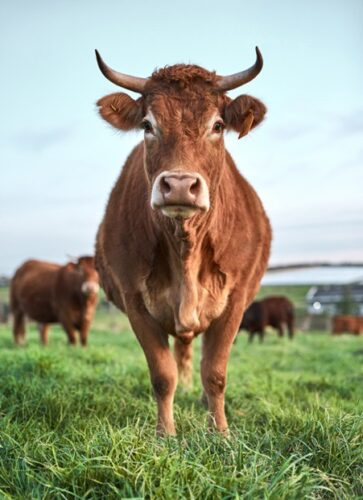
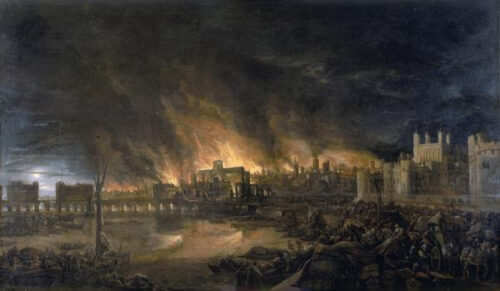



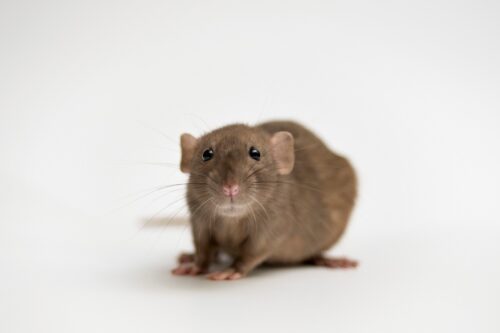


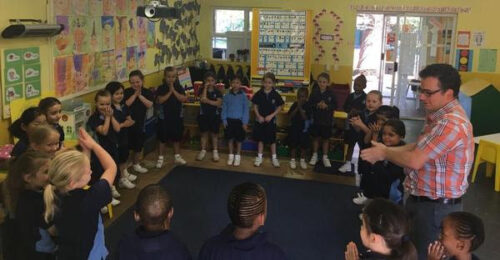



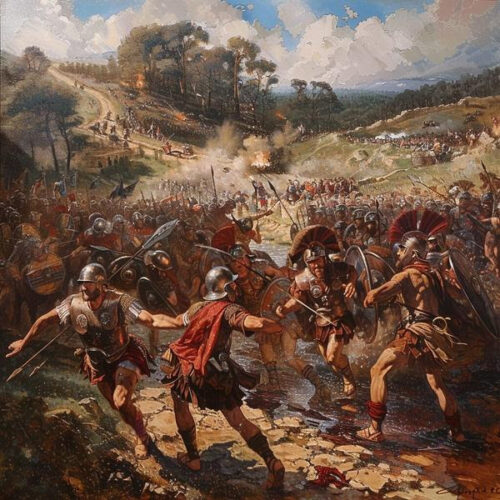
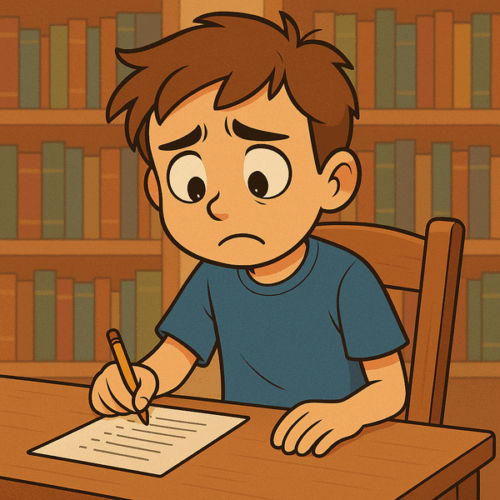
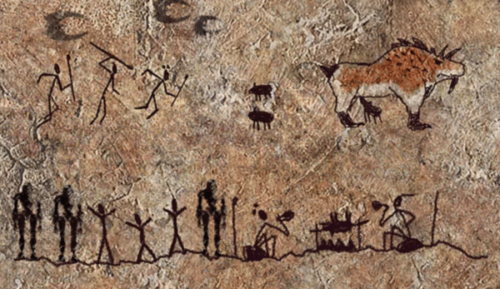





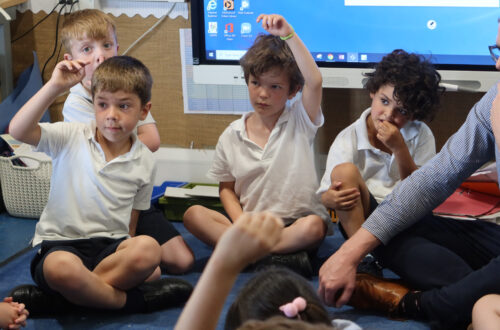
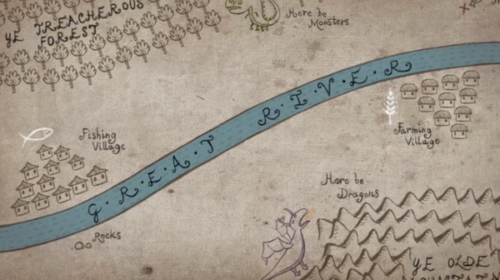

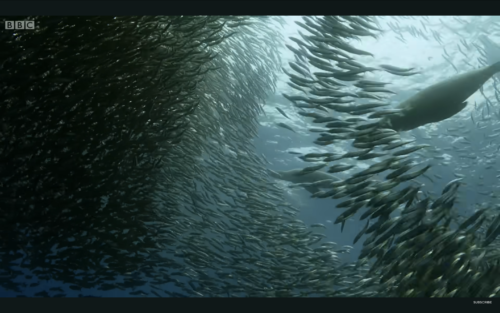

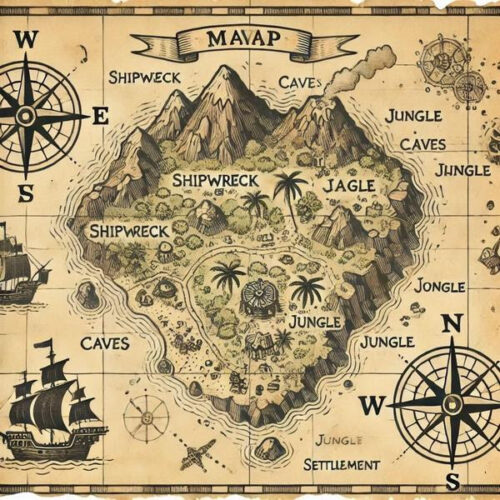
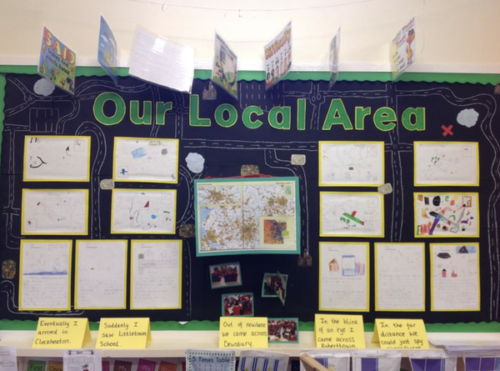
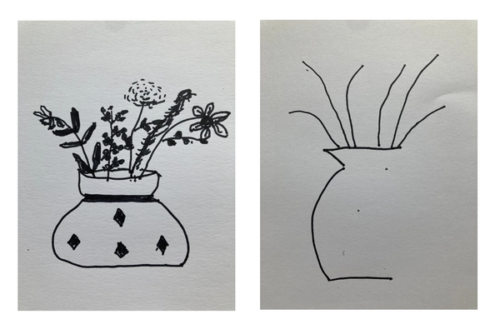





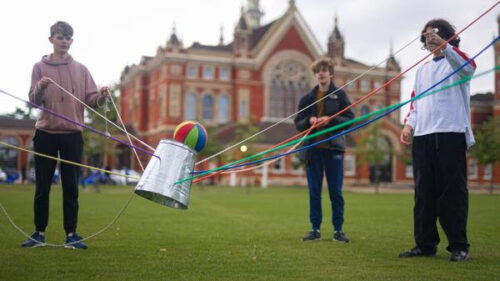

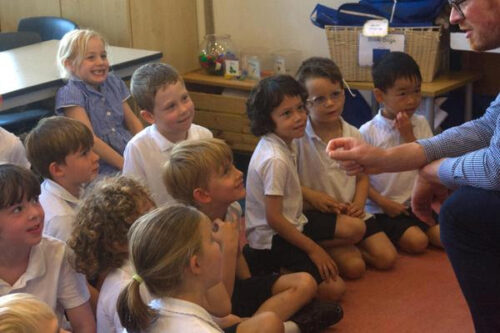


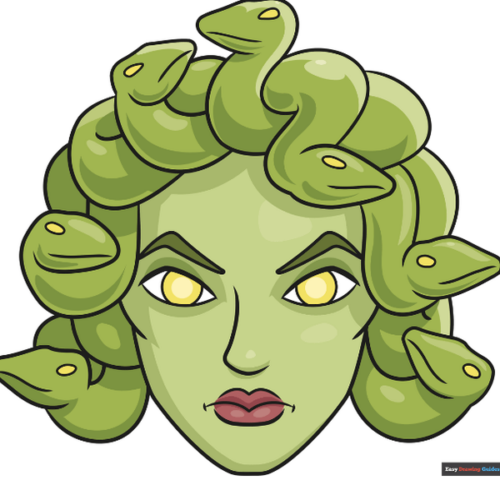


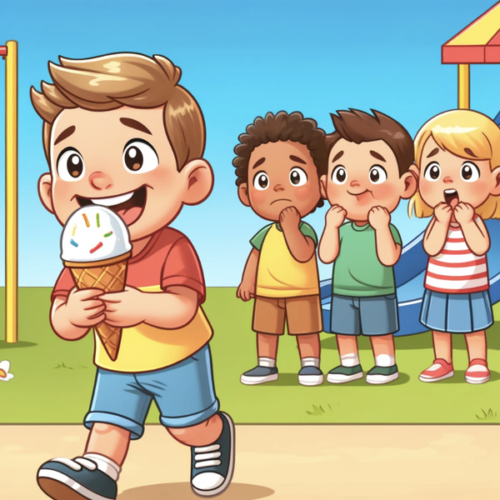
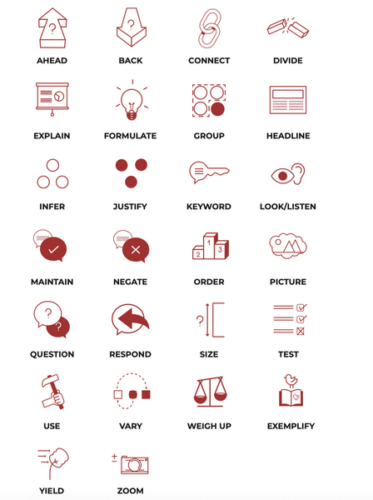
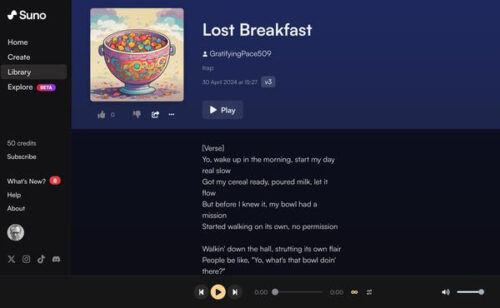
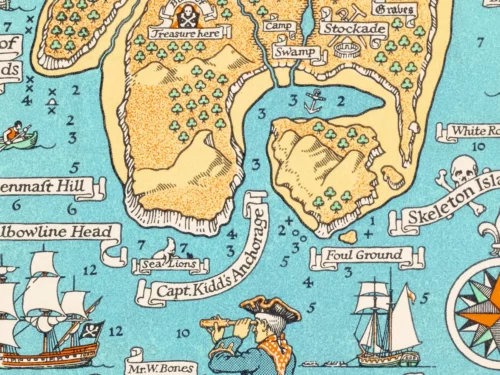
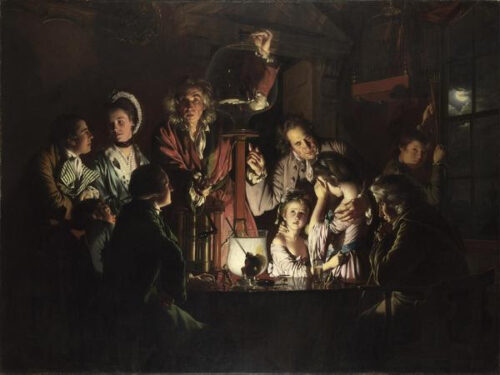
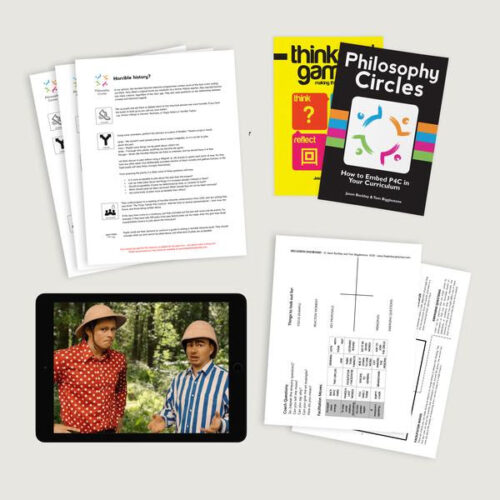


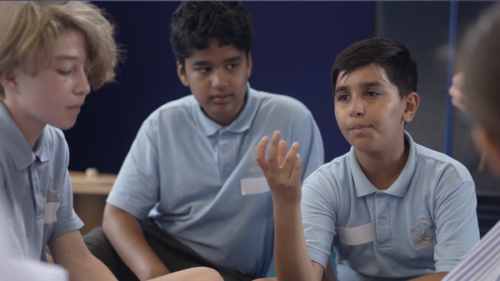

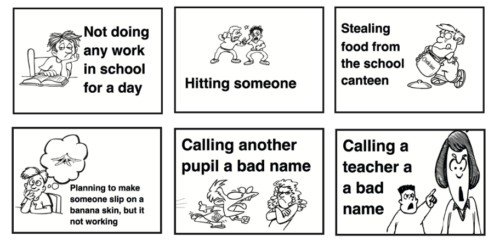

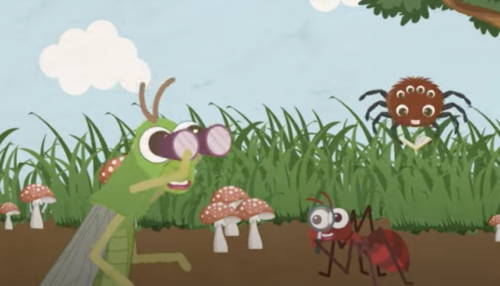


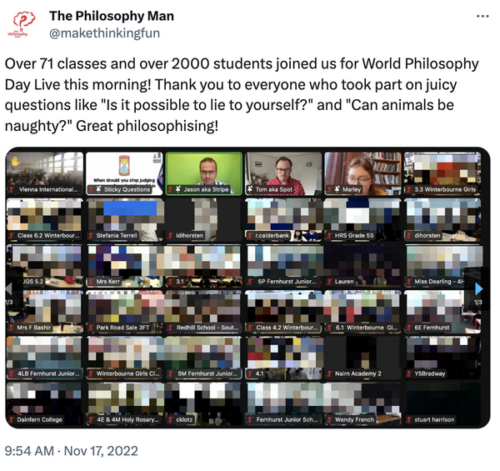


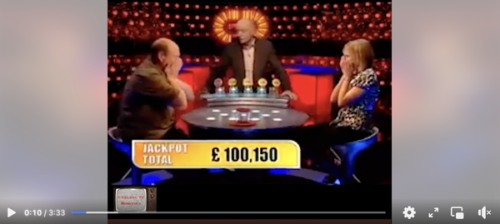



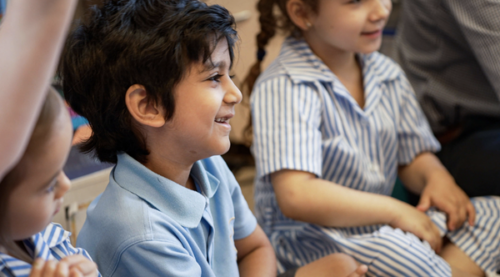
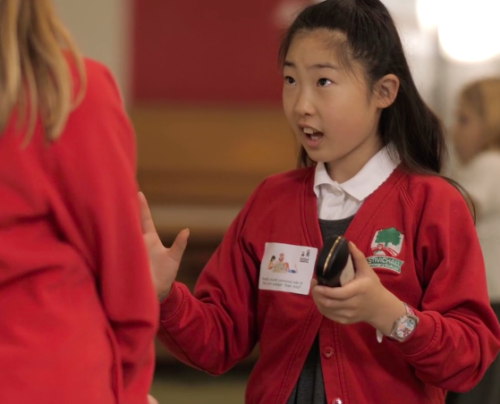
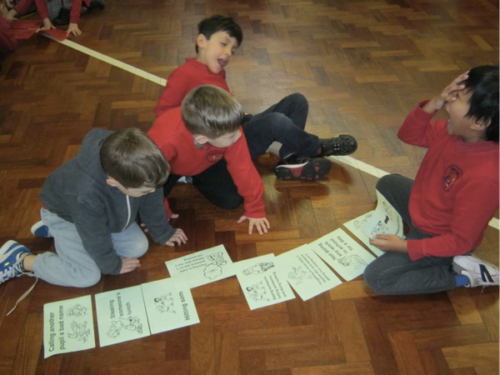






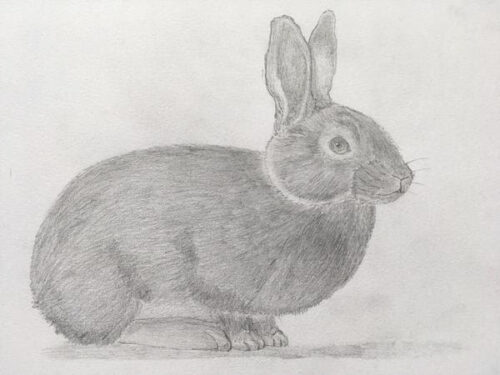



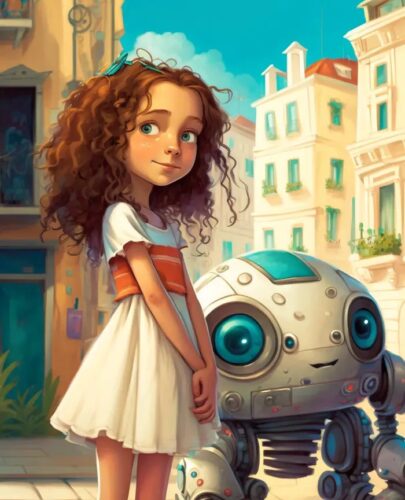

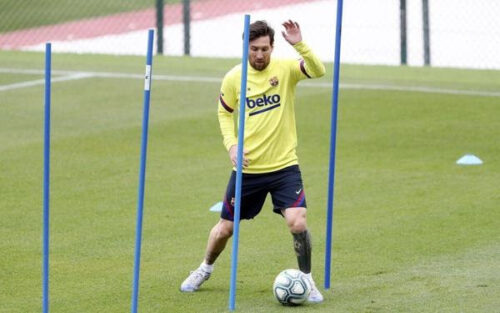






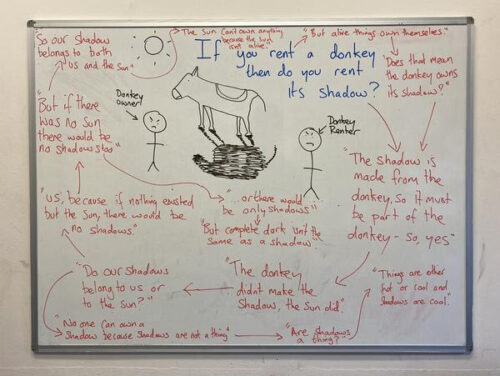




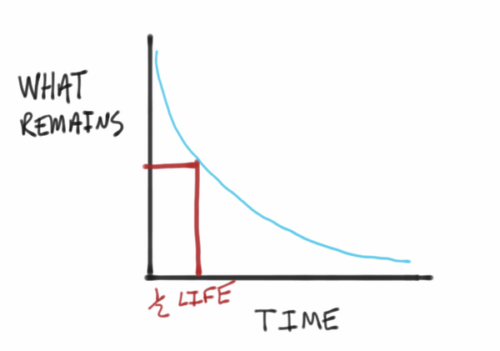

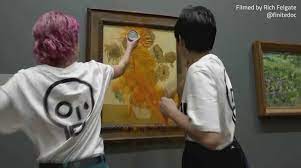
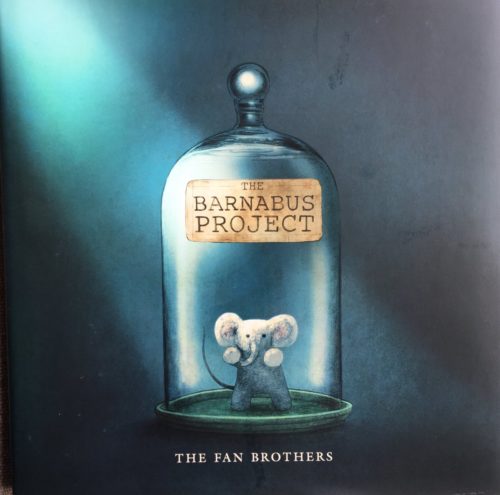


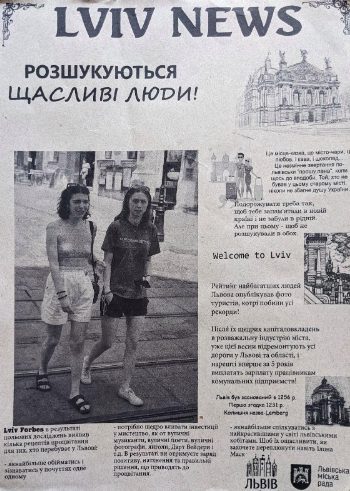

Comments are closed.